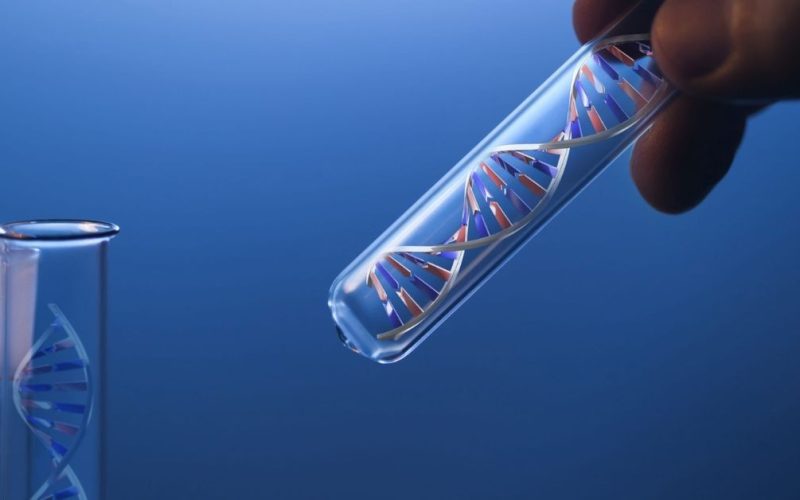In recent years, the field of genetic testing has seen remarkable advancements, transforming the landscape of healthcare and personalized medicine. With the ability to analyze an individual’s DNA, genetic testing provides invaluable insights into one’s predisposition to various diseases, potential response to treatments, and even ancestry. This article delves into the latest developments in genetic testing, highlighting what you need to know about this rapidly evolving field.
The Basics of Genetic Testing
Genetic testing involves examining a person’s DNA—the molecular blueprint of life—to identify changes or mutations in genes that could indicate a risk for certain diseases or conditions. These tests can be conducted using various methods, including blood samples, saliva swabs, or tissue biopsies. The results can offer a wealth of information, from identifying inherited conditions to predicting how a person might respond to specific medications.
Key Advances in Genetic Testing
1. Next-Generation Sequencing (NGS)
One of the most significant breakthroughs in genetic testing is the advent of Next-Generation Sequencing (NGS). Unlike traditional methods, which examine one gene at a time, NGS can analyze multiple genes simultaneously. This high-throughput technology has drastically reduced the time and cost associated with genetic testing, making it more accessible to a broader population.
NGS has applications in various fields, including oncology, where it helps in identifying mutations that drive cancer growth. By understanding these mutations, doctors can tailor treatments to target specific genetic abnormalities, improving patient outcomes.
2. CRISPR and Gene Editing
CRISPR (Clustered Regularly Interspaced Short Palindromic Repeats) technology has revolutionized genetic testing and gene editing. This powerful tool allows scientists to make precise changes to the DNA sequence, potentially correcting genetic defects that cause disease. While still in the experimental stages for many applications, CRISPR holds promise for treating genetic disorders such as cystic fibrosis, muscular dystrophy, and even certain types of cancer.
3. Liquid Biopsies
Traditional biopsies involve invasive procedures to obtain tissue samples for genetic testing. Liquid biopsies, on the other hand, offer a non-invasive alternative by analyzing circulating tumor DNA (ctDNA) found in blood samples. This method is particularly useful for monitoring cancer progression and detecting minimal residual disease after treatment. Liquid biopsies provide a less painful and more convenient option for patients, with the added benefit of being able to perform repeated tests over time.
4. Polygenic Risk Scores (PRS)
Polygenic Risk Scores (PRS) represent another exciting development in genetic testing. Unlike tests that focus on single-gene mutations, PRS evaluates the combined effect of multiple genetic variants to estimate an individual’s risk for complex diseases such as heart disease, diabetes, and Alzheimer’s. By integrating PRS into routine healthcare, doctors can identify high-risk individuals early and implement preventive measures to mitigate potential health issues.

Applications of Genetic Testing
1. Personalized Medicine
One of the most promising applications of genetic testing is personalized medicine. By understanding a patient’s genetic makeup, healthcare providers can tailor treatments to the individual’s unique genetic profile. This approach not only enhances the effectiveness of treatments but also minimizes adverse reactions. For instance, pharmacogenomic testing can determine how a person metabolizes certain medications, allowing doctors to prescribe the most suitable drugs and dosages.
2. Prenatal and Newborn Screening
Genetic testing plays a crucial role in prenatal and newborn screening. Expectant parents can opt for non-invasive prenatal testing (NIPT) to screen for chromosomal abnormalities such as Down syndrome. Newborn screening, on the other hand, involves testing infants for a range of genetic disorders shortly after birth. Early detection of these conditions enables timely interventions that can significantly improve the quality of life for affected individuals.
3. Cancer Risk Assessment
Genetic testing is invaluable in assessing an individual’s risk for hereditary cancers. Tests like BRCA1 and BRCA2 can identify mutations that increase the risk of breast and ovarian cancer. Armed with this knowledge, individuals can take proactive steps such as increased surveillance, lifestyle modifications, or even preventive surgeries to reduce their cancer risk.
4. Ancestry and Genealogy
Beyond medical applications, genetic testing has also gained popularity in the realm of ancestry and genealogy. Companies like 23andMe and AncestryDNA offer direct-to-consumer tests that provide insights into a person’s ethnic background and familial connections. These tests can uncover fascinating information about one’s heritage and even connect individuals with long-lost relatives.
Ethical and Privacy Considerations
While the advances in genetic testing offer immense benefits, they also raise important ethical and privacy concerns. The potential for genetic discrimination by employers or insurers is a significant issue. Although laws like the Genetic Information Nondiscrimination Act (GINA) in the United States provide some protection, gaps remain, and individuals must be vigilant about how their genetic information is used.
Moreover, the accuracy and interpretation of genetic test results can vary, leading to potential misdiagnoses or unnecessary anxiety. It is crucial for individuals to consult with healthcare professionals and genetic counselors to fully understand the implications of their test results.
The Future of Genetic Testing
The future of genetic testing is undoubtedly bright, with continuous advancements on the horizon. As technology evolves, we can expect even more precise and comprehensive tests that offer deeper insights into our genetic makeup. Integration with artificial intelligence and machine learning will likely enhance the interpretation of complex genetic data, paving the way for more personalized and effective healthcare.
Additionally, the democratization of genetic testing will continue, making these powerful tools accessible to a larger segment of the population. As costs decrease and awareness increases, genetic testing will become an integral part of routine medical care, empowering individuals to take control of their health like never before.
Conclusion
Advances in genetic testing have revolutionized the field of medicine, offering unprecedented insights into our genetic makeup and its impact on our health. From Next-Generation Sequencing and CRISPR to liquid biopsies and Polygenic Risk Scores, these innovations are transforming how we diagnose, treat, and prevent diseases. While ethical and privacy considerations remain, the potential benefits of genetic testing are immense, promising a future where personalized medicine is the norm and genetic disorders are a thing of the past. As we continue to unlock the secrets of our DNA, the possibilities for improving human health are limitless.












